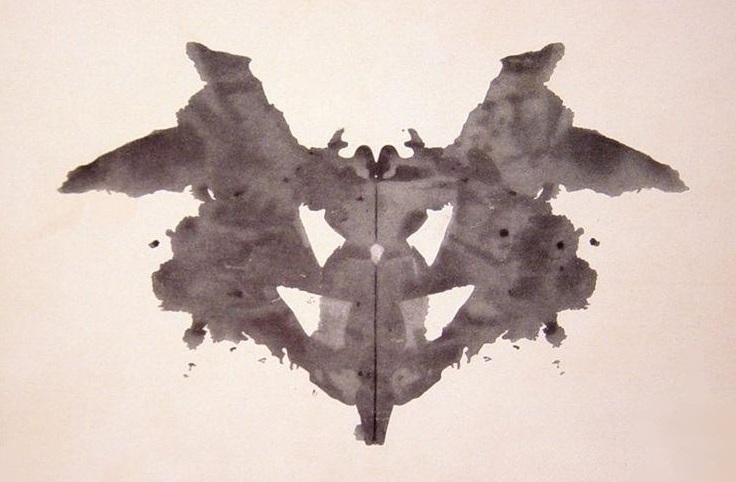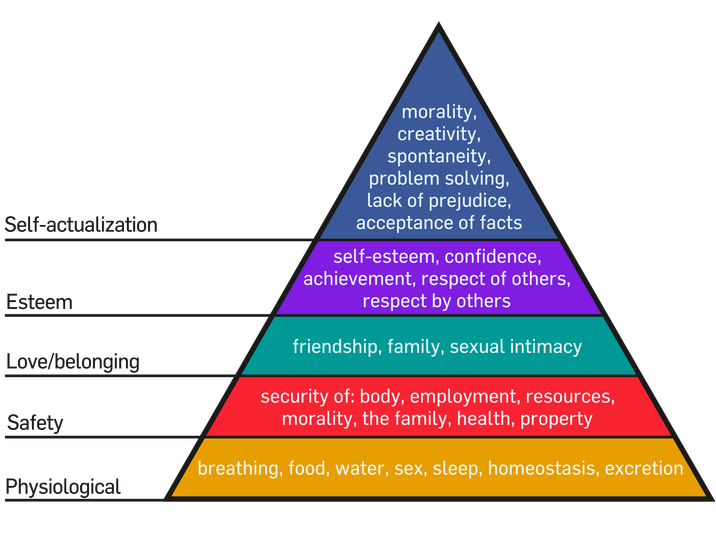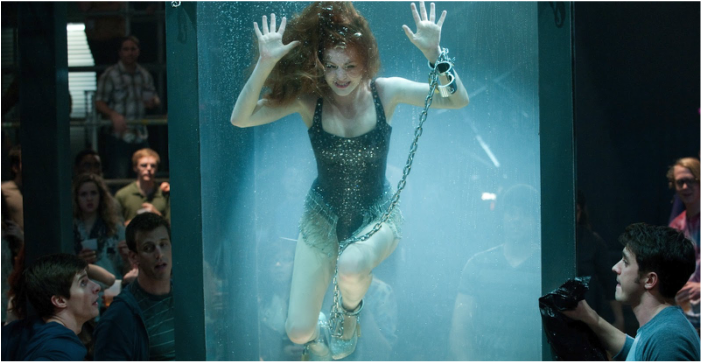HOW ARE YOU FEELING TODAY?
Psychoanalytical literary theory falls into the category of PERSONAL MIRRORS, or criticisms that reflect an individual mind and personality. These criticisms focuses on the ideas of The Self, a term for an individual's definition of their own identity and how this identity makes them different from others. While psychological analysis in the real world is about diagnosing and curing mental or emotional disorders, personal lenses are NOT about putting a character or author on an analyst's couch and examining their kleptomania or schizophrenia. Rather, these mirrors want to depict motivations and subconscious influences on a person's character to better understand their decisions.
Psychoanalysis specifically examines how a character's desires, obligations, and fears shape their actions in a story. The father of psychoanalysis is also the father of psychology: Sigmund Freud. Though other theorists like Abraham Maslow and Jacques Lacan contributed heavily to Freudian analysis, psychoanalysis is mostly based on the practices Freud develop fro treating patients with psychological disorders. Freud would treat his patients by having them recount their dreams and interpreting what secret fears or desires were contained in the dreams. He would also promote free association, or the process of showing a patient an object or a word and having them state the first thing that came into their mind upon seeing the image (the most well-known of these methods is the Rorschach inkblot test).
Psychoanalysis specifically examines how a character's desires, obligations, and fears shape their actions in a story. The father of psychoanalysis is also the father of psychology: Sigmund Freud. Though other theorists like Abraham Maslow and Jacques Lacan contributed heavily to Freudian analysis, psychoanalysis is mostly based on the practices Freud develop fro treating patients with psychological disorders. Freud would treat his patients by having them recount their dreams and interpreting what secret fears or desires were contained in the dreams. He would also promote free association, or the process of showing a patient an object or a word and having them state the first thing that came into their mind upon seeing the image (the most well-known of these methods is the Rorschach inkblot test).
SPLIT PERSONALITY: The Id, Ego, and Superego
Why look at dreams and free associated words? Why can't a patient just say what's wrong? Freud theorized that, like onions and ogres, the personality had layers. The conscious mind could lie to Freud or be deluded (after all, can one really trust the word of a crazy person?), so he had to examine the unconscious mind. The mind, in Freud's view, has three layers:
The conflict and mediation between the id, superego, and ego drives character conflict and even has a specific name in psychoanalysis: ambivalence, or strong conflicted feelings. For example, Claude Frollo in The Hunchback of Notre Dame has an ambivalence for Esmerelda: his strong romantic desire for the gypsy conflicts with his spite for her engaging in witchcraft. So as mediator, does the ego always win? Not always. According to theorist Abraham Maslow, there is a hierachy of needs all creatures, including man, share: these are the backbone of the id, and when these basic needs are not met, the rational mind tends to take a backseat. The needs are (in order to most basic to least basic):
- The id is a representation of the wants and desires a person has. A person ruled by only an id would be like an animal, without reasoning and only hungers, completely ruled by passion.
- The superego is a representation of the rational mind--a mind that believes in truth, morality, and the concept of right and wrong. While what the superego believes may be influenced by what a person is taught and observes, everyone has an innate sense of right and wrong (even if society doesn't agree with the individual's definition). The superego is objective and without passion.
- Obviously, the id and the superego are opposites and are constantly at war within a person. Say a character wants to kiss a girl. The id would take the girl by force and kiss her. The superego would deny the kiss by virtue of its lack of necessity and that one has no right to request the kiss of another. The ego is the peacemaker--the ego navigates how to get what we want without creating a logical or ethical dilemma (in our example, the ego may drive the character to get to know the girl better and determining if she wants to be kiss before trying to kiss her).
The conflict and mediation between the id, superego, and ego drives character conflict and even has a specific name in psychoanalysis: ambivalence, or strong conflicted feelings. For example, Claude Frollo in The Hunchback of Notre Dame has an ambivalence for Esmerelda: his strong romantic desire for the gypsy conflicts with his spite for her engaging in witchcraft. So as mediator, does the ego always win? Not always. According to theorist Abraham Maslow, there is a hierachy of needs all creatures, including man, share: these are the backbone of the id, and when these basic needs are not met, the rational mind tends to take a backseat. The needs are (in order to most basic to least basic):
- Physiological: what a body needs to live--air, water, food, and shelter from the elements
- Safety: a sense that one is not in immediate danger of death or having one's physiological needs not met. This could be environmental (a soldier at war) or economic (a college student who has to live for two weeks on $4)
- Love: a feeling that one is accepted and wanted by others. This includes eros (romantic love), philia (friendship), and storge (family).
- Esteem: a sense that one is respectable and admired by others. This is tied to philautia, or self-respect. Esteem is usually earned by good works in a community or through one's job.
- Self-actualization: a sense that one in reaching their full potential. A person may have a steady job that lets them pay all their bills and provide a needed service to others, but this will not satisfy a person who feels that they have more talent or resources that are not used--for instance, a college graduate in philosophy who can only find work as a bookstore clerk. This is tied to agape, which is a sense of belonging to something greater than one's self. The highest level of self-actualization is transcendence--rising above all human needs and tapping into something greater.
DUAL DESIRES: Eros and Thanatos
While Maslow goes specific with desires, Freud went general. He believed that all creatures were driven by only two main id desires: eros, a physical desire for others, and thanatos, a fear of death. These two actions, Freud argued, are the only essential drives to continue a species: physical desire inspires creatures to procreate and bear children, and fear of death keeps creatures alive. Freud claimed that people symbolized these obsessions, and the erotic/thanatotic symbolism is present in all texts. For example, Freud viewed the fruit in Genesis as an erotic symbol, as fruit bears the seeds of the next generation of plants; he also saw the tree of knowledge as a thanatotic symbol, as its presence threatens the perfect lives of Adam and Eve.
Freud's most important literary example of the intersection of love and death, however, was Oedipus, Sophocles' king who unknowingly killed his father Laius and married his mother Jocasta. Oedipus did these terrible acts because his id had free reign: he killed Laius in order to survive (thanatos) and married Jocasta out of attraction (eros). Yet what was most important to Freud is that Oedipus did the acts without knowing that Laius and Jocasta were his parents; had he known, his superego would have stopped these acts, but because he didn't, the more natural state of man is to give into desire. Thus, Freud concluded that the superego is constantly stopping us from committing unspeakable acts we would never consciously be aware of because the id desires everything.
This lead him to one of his most important discoveries: the idea of repression. Repression occurs when an id desire is not satisfied because it is squashed by the superego. Even if the superego is morally right in curbing the desire, the desire exists and can cause problems in not being expressed. This is the cause of neurosis, or strange thoughts and obsessions. Remember that the id-ego-superego interaction happens in the unconscious mind, so a neurotic character may not be aware of what untapped desires drive their neuroses. Sometimes, a repressed desire can affect a character long after it happened (this affect is called latency). The only cure for neurosis is to uncover what desire is being left unfulfilled and either give into the desire or to no longer have the desire.
Freud's most important literary example of the intersection of love and death, however, was Oedipus, Sophocles' king who unknowingly killed his father Laius and married his mother Jocasta. Oedipus did these terrible acts because his id had free reign: he killed Laius in order to survive (thanatos) and married Jocasta out of attraction (eros). Yet what was most important to Freud is that Oedipus did the acts without knowing that Laius and Jocasta were his parents; had he known, his superego would have stopped these acts, but because he didn't, the more natural state of man is to give into desire. Thus, Freud concluded that the superego is constantly stopping us from committing unspeakable acts we would never consciously be aware of because the id desires everything.
This lead him to one of his most important discoveries: the idea of repression. Repression occurs when an id desire is not satisfied because it is squashed by the superego. Even if the superego is morally right in curbing the desire, the desire exists and can cause problems in not being expressed. This is the cause of neurosis, or strange thoughts and obsessions. Remember that the id-ego-superego interaction happens in the unconscious mind, so a neurotic character may not be aware of what untapped desires drive their neuroses. Sometimes, a repressed desire can affect a character long after it happened (this affect is called latency). The only cure for neurosis is to uncover what desire is being left unfulfilled and either give into the desire or to no longer have the desire.
SO HOW DO I READ USING PSYCHOANALYSIS?
Psychoanalysis seeks to discover how what characters want drive their actions in a story. Note that psychoanalysis is not about analyzing characters, but at what motivated the action a character takes.
- A psychoanalytical theorist looks at a character's id desires. What does the character want both consciously and subconsciously? How do their wants bring them into conflict with other characters? How do these desires cause self-conflict with the superego? Dreams of characters, just like the dreams of Freud's patients, are important, as they reveal desires a character will not admit to.
- A psychoanalytical theorist looks at a character's place in Maslow's hierarchy. What are a character's needs? How do these needs influence their desires and how a character acts?
- A psychoanalytical theorist looks at a character's ambivalence and repression. When do two desires clash? When this happens, which desire ultimately wins?What desires does the superego crush, and why does the superego crush them? When a desire goes unfulfilled, how does it affect a character's decisions?
THE BREAKDOWN
- Psychoanalysis focuses on the a character's desires affect their actions
- Look for what characters want
- Look for conflict between what a character wants and what they should do
- Look for ambivalence (when a character feels two different ways about the same thing)
- Look for what a character needs via Maslow's hierarchy
- Look to what a character does when a desire is repressed and unfulfilled
GREAT TEXTS TO READ FROM A PSYCHOANALYTICAL LENS
- Oedipus Rex by Sophocles
- Lysistrata by Aristophanes
- The Merchant of Venice by William Shakespeare
- A Midsummer Night's Dream by William Shakespeare
- Don Quixote by Miguel de Cervantes Saaverda
- Pride and Prejudice by Jane Austen
- Hope Leslie by Catherine Maria Sedgewick
- "The Yellow Wallpaper" by Charlotte Perkins Gillman
- Alice's Adventures in Wonderland by Lewis Carroll
- The Bell Jar by Sylvia Plath
- Lord of the Flies by William Golding
- American Born Chinese by Gene Luen Yang
- Daytripper by Fabio Moon and Gabriel Ba
FURTHER CRITICAL READING
xxxxxxxxxxx


